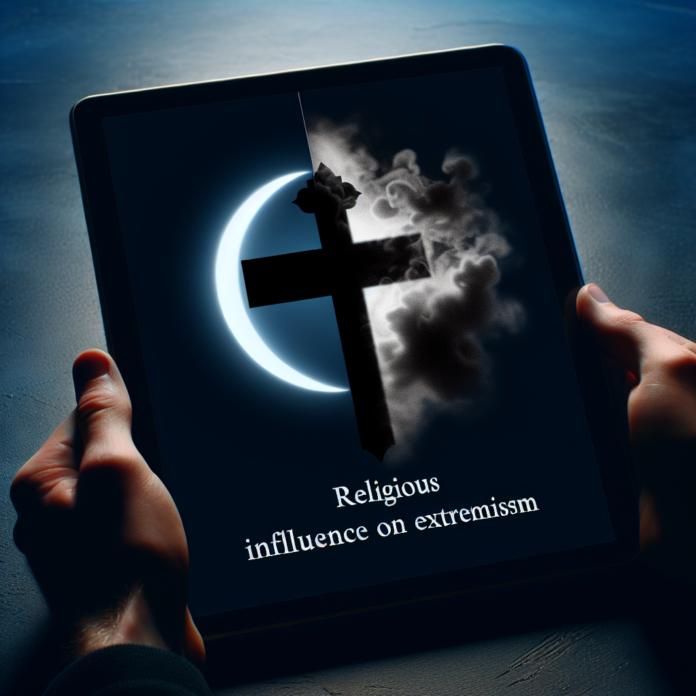Weaponizing Dogma: The Role of Religion in Pro-Life Extremism
In recent years, the seemingly endless debate over reproductive rights has escalated into a cultural war, a battleground rooted in religious dogma, wielded as a weapon by pro-life extremists. Traditionalist perspectives, often grounded in Catholic conservatism, have shaped and energized these campaigns against abortion rights. The interface between religion and politics in the struggle over reproductive autonomy has created a landscape fraught with tension and controversy, revealing how deeply religious dogma can infiltrate and influence political agendas.
Historically, the intertwining of religion and reproductive rights dates back centuries. In medieval Europe, the Catholic Church held significant control over moral and ethical norms, including deeply ingrained beliefs about women’s bodies and their roles within society. The imposition of these beliefs created a rigid framework within which women’s reproductive choices were strictly regulated. The echoes of this theocratic past resonate in today’s pro-life movements, where traditionalist values are often framed as timeless truths rather than social constructs.
In the United States, a critical juncture came in 1973 with the landmark Supreme Court decision in Roe v. Wade, which recognized a woman’s constitutional right to choose abortion. Reactionary forces, however, quickly mobilized. The rise of the Religious Right in the late 20th century brought a politicized form of evangelical Christianity and Catholic conservatism to the forefront. Figures such as Jerry Falwell and Pat Robertson leveraged religious dogma to galvanize opposition to abortion, framing the issue as a fundamental moral crisis.
These efforts were underpinned by an ideology that sought to conflate religious beliefs with legislative agendas. Scriptural interpretations were employed to argue for the sanctity of life from the moment of conception, transforming personal beliefs into public policy. This merging of church and state interests has had enduring repercussions, with the religious right exercising significant influence over Republican platforms.
Recent events highlight the crescendo of this ideological struggle. The nomination and confirmation of Supreme Court Justice Amy Coney Barrett, a devout Catholic with known pro-life leanings, have intensified the debate over Roe v. Wade’s future. Her appointment represents a strategic victory for those seeking to impose religiously motivated restrictions on reproductive rights. Moreover, the passage of stringent abortion laws in states like Alabama and Texas, where the state’s near-total abortion ban was recently upheld, underscores how religious dogma continues to direct legislative efforts at curtailing women’s autonomy.
These legislative victories for pro-life extremists are often celebrated within traditionalist circles as moral triumphs. However, they also illuminate the broader consequences of weaponizing religious dogma. Restrictions on abortion access disproportionately affect marginalized groups, including those with limited financial resources and people of color. This intersectionality reveals a stark irony: the very values professed by religious traditionalists as pro-life frequently result in significant harm to living, breathing humans who are often pushed further into cycles of poverty and inequality.
Parallel to the legal assaults on abortion access, pro-life extremists have also escalated their tactics on the ground. Clinics providing abortion services have faced a surge in harassment, intimidation, and even violence. The deadly 2015 attack on a Planned Parenthood clinic in Colorado Springs, Colorado, serves as a grim reminder of how religious fervor can manifest in extreme, destructive action. Such incidents are not isolated but rather part of a broader pattern of aggression justified under the guise of moral righteousness.
The persuasive power of religious dogma in shaping public opinion and policy cannot be understated. Iconic figures like Pope Francis have called for compassion and understanding around complex issues like reproductive rights. However, Catholic conservatism, often vehemently opposed to abortion, remains a deeply entrenched force within many communities and political structures. This duality within the Church itself underscores the complexity of untangling personal belief from public policy.
Yet, progress is not stagnant. Movements championing reproductive justice are growing, advocating not only for the right to choose but also for comprehensive sex education, access to contraception, and support for maternal health. These progressive values seek to empower individuals with the knowledge and resources to make informed decisions about their bodies and lives. Unlike the restrictive, dogmatic stances of pro-life extremists, these initiatives recognize the nuanced realities faced by women across socio-economic spectra.
In conclusion, the weaponization of religious dogma in pro-life extremism represents a significant threat to reproductive autonomy and human rights. By examining the historical roots and contemporary manifestations of this phenomenon, it’s evident that the coalition of traditionalist beliefs and political power has profound implications for society. While religious freedom must be respected, it is equally essential to safeguard personal liberty and uphold progressive values that champion health, equality, and justice for all. As the debate continues to intensify, it is crucial to remain vigilant against efforts that prioritize dogma over individual rights and well-being.
